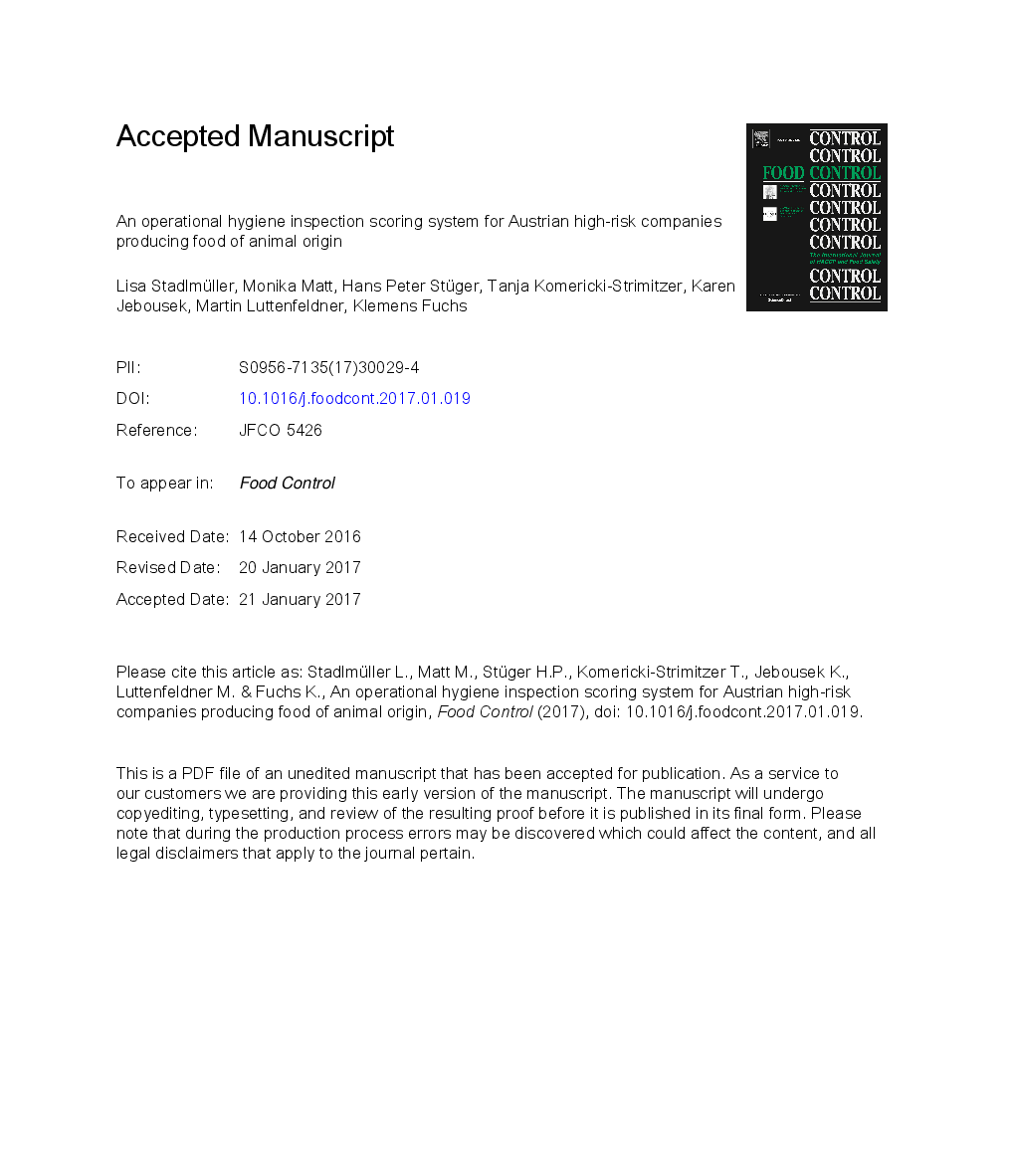ترجمه فارسی عنوان مقاله
یک سیستم ارزیابی سیستم بازرسی بهداشتی برای شرکت های پر مخاطره اتریش که مواد غذایی از حیوانات تولید می کنند
عنوان انگلیسی
An operational hygiene inspection scoring system for Austrian high-risk companies producing food of animal origin
| کد مقاله | سال انتشار | تعداد صفحات مقاله انگلیسی |
|---|---|---|
| 145189 | 2017 | 20 صفحه PDF |
منبع

Publisher : Elsevier - Science Direct (الزویر - ساینس دایرکت)
Journal : Food Control, Volume 77, July 2017, Pages 121-130
ترجمه کلمات کلیدی
بازرسی بهداشتی، نمره، شرکت های با ریسک بالا، مواد غذایی از منبع حیوانی، کنترل رسمی،
کلمات کلیدی انگلیسی
Hygiene inspection; Score; High-risk companies; Food of animal origin; Official control;

